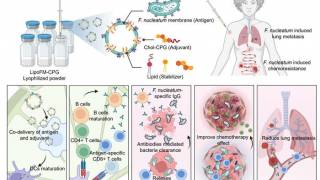Promoting Cancer Prevention in Texas

In a new editorial, behavioral scientist Dr. Jasmin Tiro at University of Texas Southwestern Medical Center explores ways to improve communication about the delivery of the human papillomavirus (HPV) vaccine Gardasil 9, which prevents the virus that causes cervical cancer.
HPV is a group of more than 150 related viruses, says the Centers for Disease Control and Prevention (CDC).
“The HPV vaccine is one of the best cancer research discoveries we've had in the last hundred years. We need to better communicate the benefits of the vaccine so that we create a community demand for this great opportunity to prevent cancer, said Dr. Tiro.
The Texas Health Journal spoke to Dr. Tiro about her work on HPV vaccine promotion. Excerpts from that discussion are below.
‘Over the past 11 years, I've been studying issues related to HPV vaccine promotion here in North Texas. That has involved a range of different things, including understanding how parents and providers communicate about HPV vaccination and testing interventions.
I've also worked to understand how factors operating at different levels—at the provider level, at the clinic level, at the patient level—are influencing effective delivery of the HPV vaccine to boys and girls.
Unlike other countries that systematically offer vaccines in schools, we have an opportunistic system.
So we have to take advantage of every opportunity patients and parents come into the doctor's office and make sure that everything in the doctor's office goes smoothly.
I'm a scientist, so I can’t say there is no chance.
But what I can tell you is that in over 15 years’ worth of data we've accumulated on millions and millions of doses that have been given to adolescents, and we've never seen anything that suggests various negative outcomes.
It's really important to understand that parents have the best of intentions.
They just want to protect and maintain their child's health. Given all the misinformation out there, it's not surprising that parents are concerned. Providers really have to work with parents and help them understand that you're coming from the same perspective as they are.
We're all trying to protect kids and trying to keep them healthy.
Almost one in 11 children in the United States live in Texas, and in the DFW Metroplex, every year 215,000 11-to-12 year-olds are due for the HPV vaccine.
We have the power to vaccinate 215,000 kids every year in North Texas, and that's a lot to of power to prevent cancer.
In Dallas County alone, we diagnose just under 100 cervical cancers a year, and there's no reason for a woman to have invasive cervical cancer in this day and age.
There are effective screening with Pap and HPV tests, and there are treatments to remove pre-cancers, and we've got this cancer prevention vaccine to prevent HPV infection.
It's really heartbreaking when we diagnose cervical cancer because it affects fertility and it has a difficult treatment.
In addition, we don’t have any effective screening tests for the HPV-related cancers affecting males. So the best way to prevent those cancers is to make sure adolescent boys receive the HPV vaccine.
Many people just talk about how we just need to raise awareness among parents and the community. And I would say that awareness is important.
But just because you know something doesn't mean you do it, right?
So, instead, I think we need to create community demand for vaccinations.
The HPV vaccine is one of the best cancer research discoveries we've had in the last hundred years. It's one of the few times where we can actually prevent cancer from even happening.
In the next few years, we have the potential to eliminate cancer from occurring in the same way that we eliminated other contagious diseases. So, it's hard for me to hear all these people not wanting to get the HPV vaccine.
I’ve been doing this work for 10 years. My daughter was born when the HPV vaccine was first FDA approved.
I've been waiting for 11 years to give the HPV vaccine to her, and we just finished her vaccine series. It's been exciting for me to finally make sure she's protected, and I want other children to be protected too.
We need to better communicate the benefits of the HPV vaccine so that we create a community demand for this great opportunity to prevent cancer.
This interview was written by Katherine Corley; UT Austin Moody College of Communication & UT Austin LBJ School of Public Affairs.
Our Trust Standards: Medical Advisory Committee

























